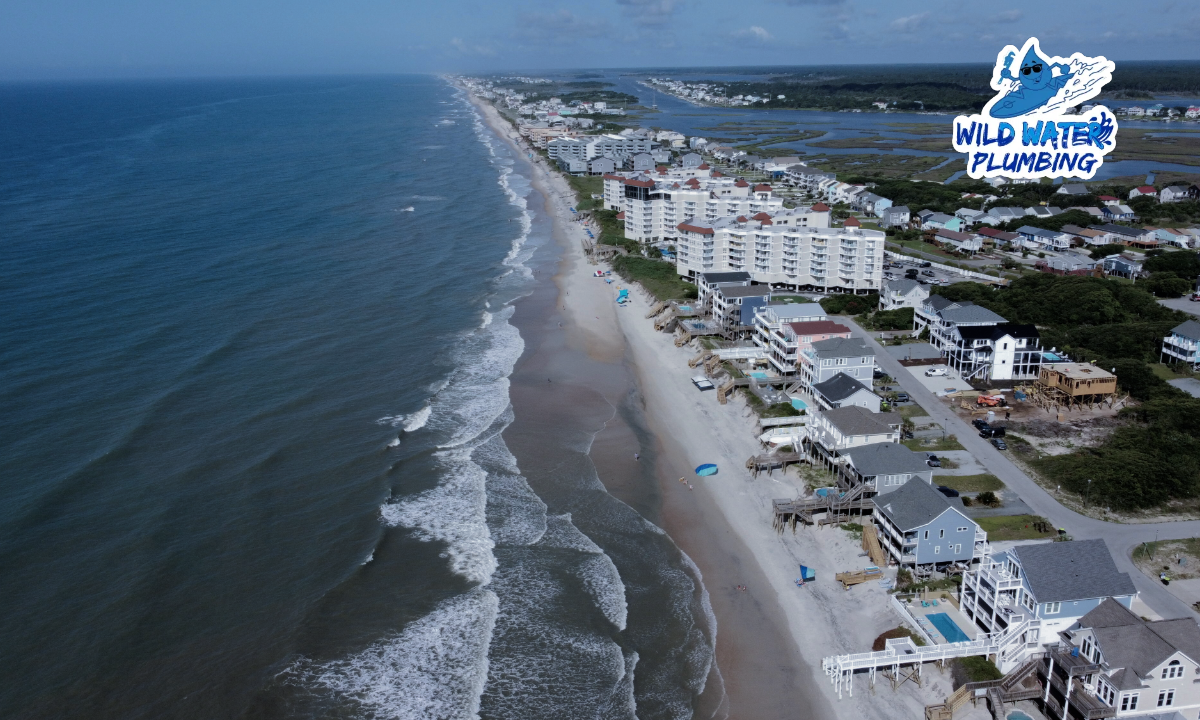Flooded Water Heaters in North Topsail Beach | Wild Water Plumbing
Living in North Topsail Beach has its perks; the ocean views, salty breeze, and laid-back vibe are hard to beat.
But there’s one thing most homeowners don’t think about until it’s too late: what flooding can do to your water heater.
If your heater is tucked away in a crawlspace or garage, it’s sitting right where floodwaters love to creep in.
And once that tank gets wet on the outside or worse, filled with floodwater, it’s basically toast.
Why Flood Zones Spell Trouble for Water Heaters
Crawlspaces and garages: ground zero
Most homes here have water heaters installed low to the ground, which makes sense for space but is terrible for flood risk.
Even a few inches of standing water can rust out the tank, fry the electrical components, and ruin the insulation.
Saltwater is even worse
North Topsail Beach isn’t just dealing with fresh floodwater.
When storm surge brings in saltwater, it speeds up corrosion dramatically. Your tank won’t just fail—it’ll fail fast.
Signs Your Water Heater Took on Flood Damage
- Rust spots forming quickly – floodwater eats through metal faster than normal wear.
- Strange smells – insulation inside the tank can hold onto dirty water.
- Pilot light or elements not working – moisture wrecks controls and burners.
- Leaks soon after a flood – once corrosion starts, leaks usually follow.
What Homeowners Can Do About It
Raise it up
Installing your water heater on a stand or platform gets it off the ground and away from the first few inches of floodwater.
Go tankless
Tankless water heaters mount on walls, often higher up in utility rooms.
That means they’re safe from most flood events and don’t store 40+ gallons of water that could get contaminated.
Plan ahead
If your home is in a mapped flood zone, think about the placement of your heater before the next storm.
A little planning now can save thousands later.
Don’t Wait for the Next Storm
North Topsail Beach is beautiful, but flood risks come with the territory.
Too many homeowners only think about their water heater once it’s already ruined.
Whether you raise your current tank, switch to tankless, or just get advice from a pro, a little prevention goes a long way toward keeping your home comfortable and safe.


